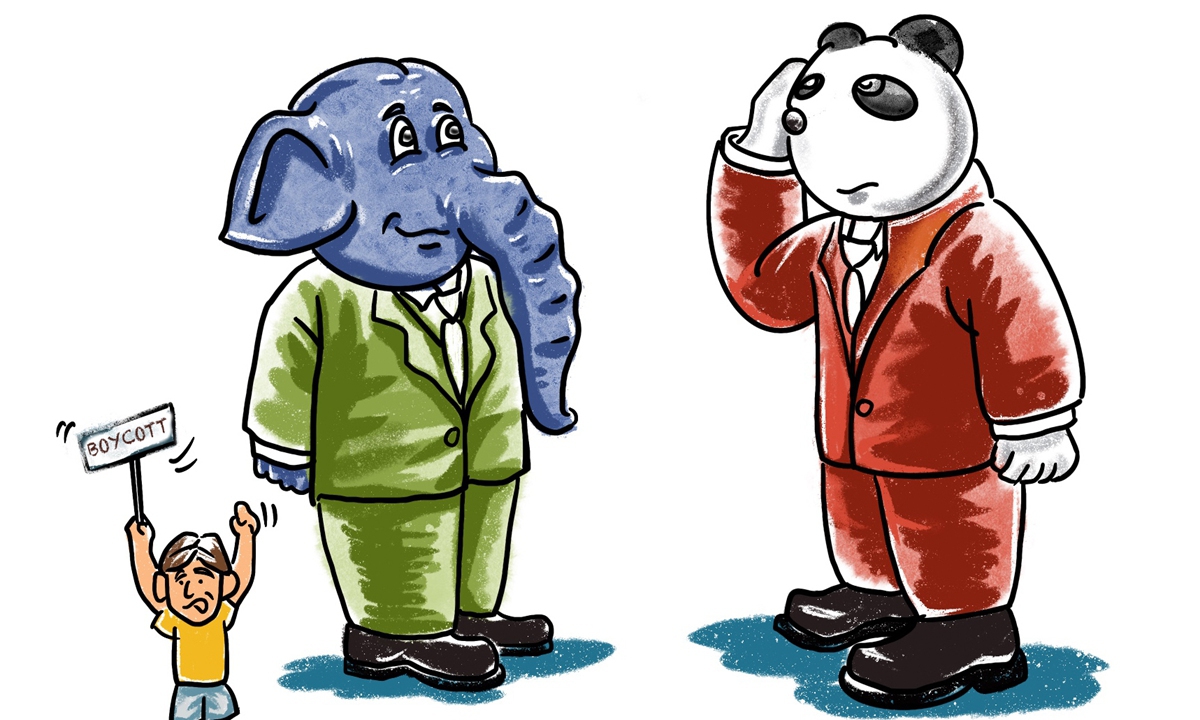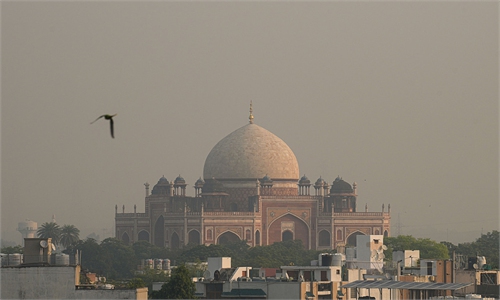COMMENTS / EXPERT ASSESSMENT
Heightened rhetoric for trade boycott will only weigh on India’s economy

Illustration: Tang Tengfei/Global Times
As India is greeting a major festival of the year, Diwali, on November 4, and some non-governmental organizations in the country have once again set off a wild wave of "boycott Chinese goods".The Confederation of All India Traders (CAIT) alleged in a statement on Friday that as CAIT has issued a call to boycott Chinese imports, it is certain that China is going to suffer a business loss of about 500 billion rupees ($6.67 billion) in terms of stoppage of import of Chinese goods by Indian traders.
India has been importing commodities related with Diwali from China and other places for years, but the increase in China-India trade seems to disgruntle anti-China groups in India, and a "boycott of Chinese goods" has almost become a regular program before Diwali.
CAIT's repeated call for boycott Chinese goods is born out of its nationalist sentiment. They are using the campaign to vent their dissatisfaction with China. And, there are various forces including Indian politicians and local businessmen who hope to gain benefits by boycotting Chinese products.
Chinese goods are of good quality and competitively priced, making them a very cost-effective choice for Indian merchants and consumers. Over the past few years, China-India economic and trade ties have continued to build. It can be said that Chinese products are popular among Indians.
However, since the China-India border clash in middle 2019, some forces in India have been sparing no efforts to call for a boycott of Chinese goods. However, the development of bilateral trade between China and India remains steadily increasing, and many Indian companies are dependent on China's supply.
In the first nine months this year, China-India trade reached $90.37 billion, up 49.3 percent year-over-year, according to data released by China's General Administration of Customs on October 13. China's exports to India hit $68.46 billion, up 51.7 percent.
Although India's boycott of Chinese goods to some extent is a call to boost its domestic economy by growing its own manufacturing base, India is unable to provide its consumers cost-effective goods.
According to data released by the International Monetary Fund, the India's GDP contracted an unprecedented 7.3 percent in the last financial year that ended in March 2021. Now, India urgently needs to revive its economy from the fallout of COVID-19, develop its own manufacturing industry, and promote an economy-wide industrial upgrade. If India can abandon its prejudices and engage in mutually beneficial economic cooperation with China, it will benefit India which remains largely poverty-stricken.
In fact, the economic relationship between China and India is asymmetrical. India's vulnerability and dependence on trade are far greater than China's. China's exports to India account for only a small part of its total exports, and any resistance by India is unlikely to have a substantial impact on China's economy.
If the irrational call for anti-Chinese by CAIT continues, it will hurt India more than China. In the end, it will only harm the interests of Indian businessmen and consumers. It is senseless to repeatedly hype boycotting Chinese products, and seeking mutually beneficial economic and trade cooperation is the right option for India.
The author is an assistant research fellow with the National Institute of International Strategy at the Chinese Academy of Social Sciences. bizopinion@globaltimes.com.cn



